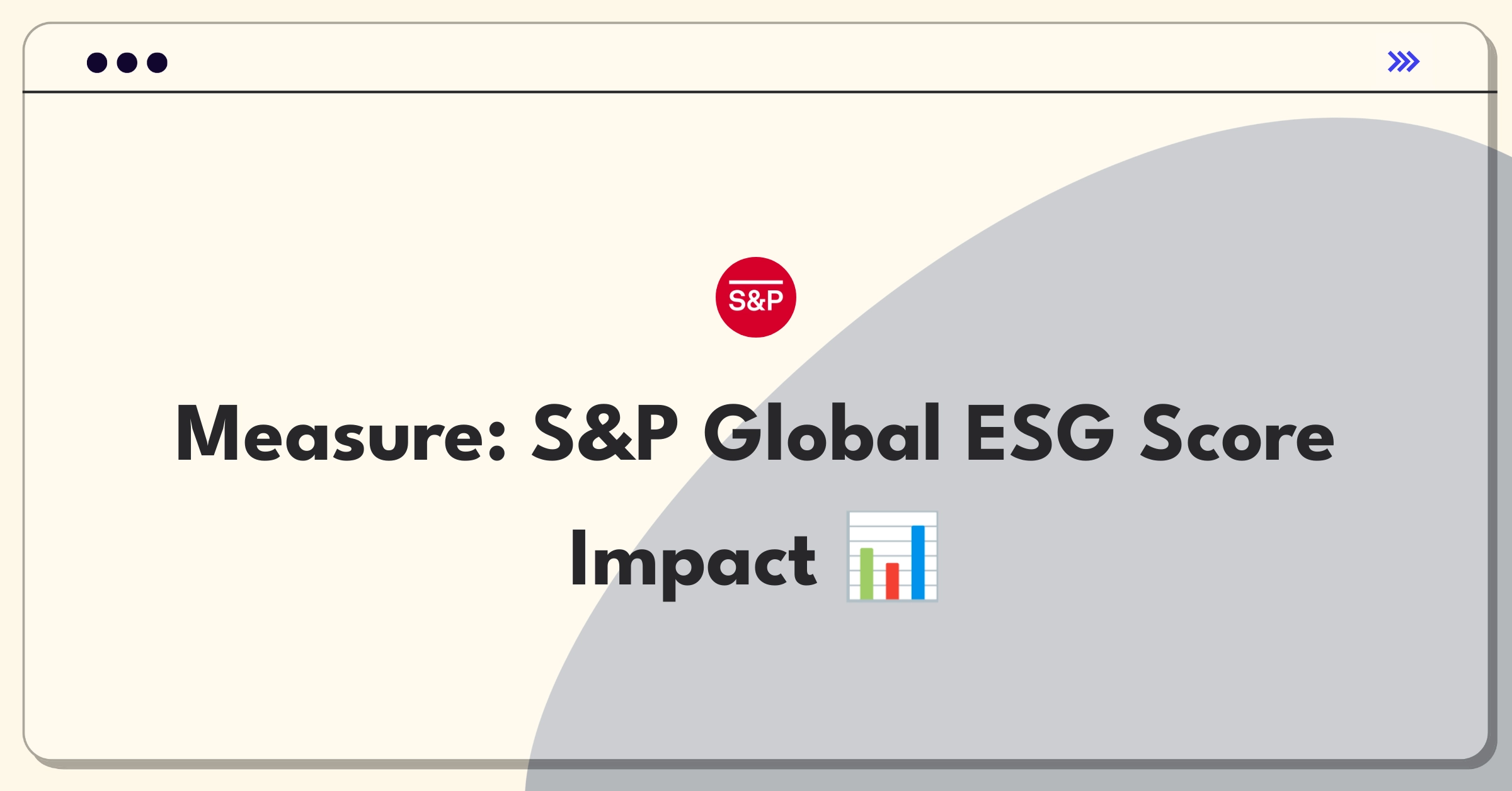Introduction
Evaluating S&P Global's ESG Scores requires a comprehensive approach to product success metrics. These scores play a crucial role in the financial industry, influencing investment decisions and corporate strategies. To effectively assess their performance, we'll need to consider multiple stakeholders, including investors, rated companies, and regulatory bodies. I'll outline a structured framework that covers core metrics, supporting indicators, and risk factors to provide a holistic view of the ESG Scores' effectiveness and impact.
Framework Overview
I'll follow a simple success metrics framework covering product context, success metrics hierarchy, and strategic initiatives to improve the product.
Step 1
Product Context
S&P Global's ESG Scores are a set of data-driven assessments that measure a company's performance on environmental, social, and governance factors. These scores are used by investors, asset managers, and corporations to evaluate sustainability risks and opportunities.
Key stakeholders include:
- Investors: Seeking reliable data for sustainable investment decisions
- Rated companies: Looking to improve their ESG performance and attract investment
- Regulators: Ensuring transparency and standardization in ESG reporting
- S&P Global: Aiming to provide accurate, valuable insights while maintaining profitability
User flow:
- Data collection: S&P Global gathers ESG data from various sources, including company disclosures and third-party reports.
- Analysis: The data is processed using proprietary methodologies to generate ESG scores.
- Distribution: Scores are made available to subscribers through various platforms and integrated into financial products.
- Application: Users incorporate ESG scores into their investment strategies, risk assessments, and corporate benchmarking.
S&P Global's ESG Scores fit into the company's broader strategy of providing essential intelligence to the global markets. They complement traditional financial metrics and help position S&P Global as a leader in sustainable finance.
Compared to competitors like MSCI and Sustainalytics, S&P Global's ESG Scores aim to differentiate themselves through comprehensive coverage, transparent methodologies, and integration with other S&P Global products.
Product Lifecycle Stage: Growth. ESG investing is gaining momentum, but there's still significant room for expansion and refinement of scoring methodologies.
Subscribe to access the full answer
Monthly Plan
The perfect plan for PMs who are in the final leg of their interview preparation
$99.00 /month
- Access to 8,000+ PM Questions
- 10 AI resume reviews credits
- Access to company guides
- Basic email support
- Access to community Q&A
Yearly Plan
The ultimate plan for aspiring PMs, SPMs and those preparing for big-tech
- Everything in monthly plan
- Priority queue for AI resume review
- Monthly/Weekly newsletters
- Access to premium features
- Priority response to requested question


.png)